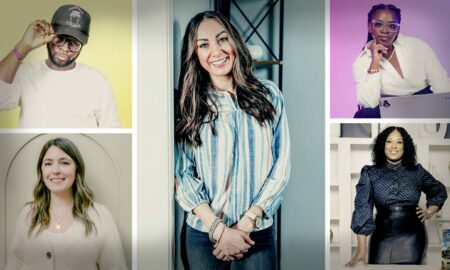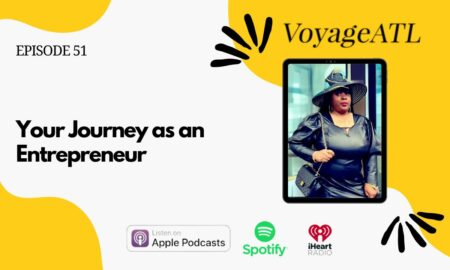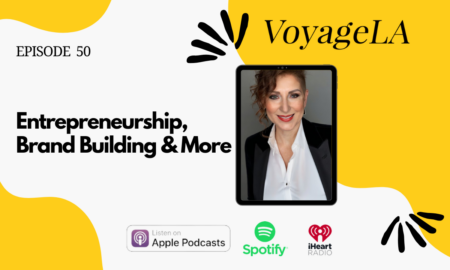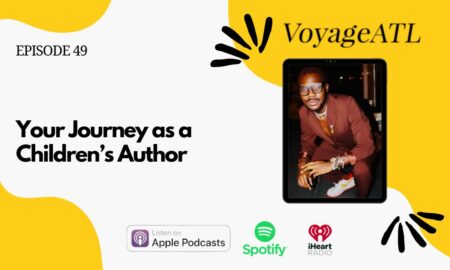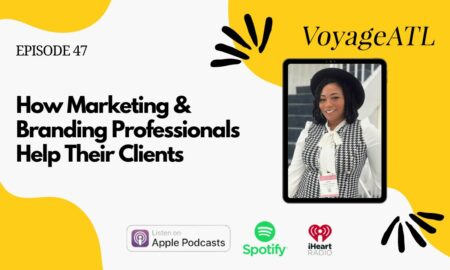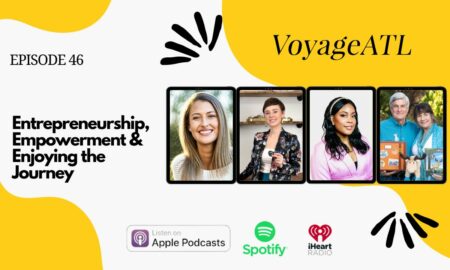

Today we’d like to introduce you to Leigh Johnson.
Thanks for sharing your story with us Leigh. So, let’s start at the beginning and we can move on from there.
I am a product of East Point. My parents are both public servants. Growing up, they made us aware of the issues that our community faced and always found ways to get us involved. Seeing my community and communities like mine suffer from gentrification as well as issues such as poor financial, educational and health outcomes sparked a fire in me at a young age. Now that I am a health research scientist my work focuses on health and social disparities within minority communities, communities of color and children. My love of fashion also started early in life. My family owns Ponder’s 60-Minute Cleaners – the oldest black-owned dry cleaners in the metro-Atlanta area – so I was always surrounded by clothes growing up and always had a deep appreciation for “mom-and-pop” establishments. I created my blog to channel my appreciation for fashion and the black community in an effort to combat the gentrification and lack of exposure within my community.
Overall, has it been relatively smooth? If not, what were some of the struggles along the way?
I put off starting my blog for a long time. My biggest issue is just being comfortable in front of a camera/in my own skin, but the practice is helping. Juggling the blog and my master’s degree is proving to be a challenge as my blog is taking a back seat to my degree right now but I’m hoping that will change soon (as I finish my masters in May!). As far as my career is concerned, the biggest challenges I’ve faced in my journey as a scientists were trying to figure out where my efforts would be best placed and where my work would make the biggest difference. I started my academic career wanting to go into medicine, but it wasn’t until I started my second year of grad school that I realized that if I spent anywhere from a quarter to three-quarters of a million dollars (of someone else’s money) to go to medical school, then spend years working I wouldn’t be happy for no matter how many lives I saved black people would still continue dying at in outrageous numbers. At that moment, I knew I had to change the problem. Now that I’m working in my field, the biggest struggles I face tend to revolve around funding and the bureaucracy of federally-backed research projects. Lobbyists are my arch-nemeses. They do the same thing researchers do except for the opposite team. We are all fighting for politician’s time, money and attention, however our initiatives revolve around helping our communities whereas lobbyists tend to advocate for profit over people (some but not all). For example, the summer before my freshman year of college I interned with a nonprofit that advocated for School-Based Health Centers in DC. I sat in offices of Georgia state Senators and Representatives and listened as many of them passively took the important work that was being presented to them and sat it to the side. From that moment, I realized that I didn’t like politics. It wasn’t until years later that I realized my work would have to involve politics in order to make a real difference. Now I am coming to terms with that reality and working towards becoming a scientist that uses her work to advocate for communities of color regardless if politicians take heed to my work or not, because regardless of the bureaucracy, my work is rewarding and will ultimately save lots of lives.
What else should we know about your work?
As an NIH research associate, I work as a human biologist and cultural liaison on research studies that pertain to health in black, diverse/minority and child populations. I have worked on studies at for institutions like the National Institute of Health, the European Union and research institutions (i.e., Emory University School of Public Health, Emory University School of Medicine and Mercer University School of Public Health). The work I do helps create policy that both directly and indirectly impacts the groups I previously mentioned. I am currently getting ready to start working on a study with the directors of my Master’s in Public Health program at Mercer at the beginning of the year and I’m really looking forward to it. This study is currently awaiting approval and funding from the NIH so we’re in limbo right now. My goal is to get my PhD then use this agency to reach the highest levels of health and help reduce the mortality and morbidity rates so my people thrive in every capacity and have sustainable health outcomes throughout life.
If you had to go back in time and start over, would you have done anything differently?
I would have started my blog sooner and done a better job of investing and marketing it so it would have a gotten off the ground sooner. Nevertheless, I have learned through both my blog and my research that everything happens in God’s timing not mine. With that being said, I don’t have any regrets because, regardless of when I started, the work that I’m doing is what I am called to do and is important because it is shedding a light on my hometown and individuals like and is paying homage to where homage is due.
Contact Info:
- Website: www.atleighn.com
- Instagram: www.instagram.com/_leighjohnson
 Image Credit:
Image Credit:
Courtney Gurlie – personal image
Suggest a story: VoyageATL is built on recommendations from the community; it’s how we uncover hidden gems, so if you or someone you know deserves recognition please let us know here.












